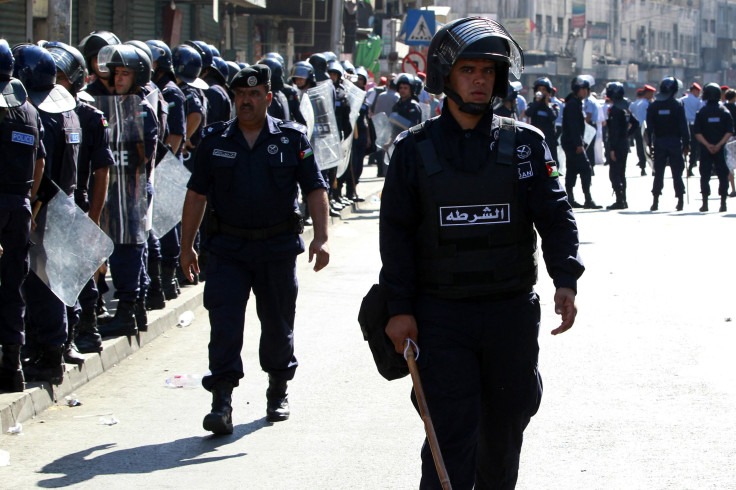Normally Peaceful Jordan May Throw Hat Into Arab Spring Ring

The flames that sparked last year’s Arab Spring hardly touched the borders of the Kingdom of Jordan, but now that King Abdullah has dissolved parliament, forcing early elections, thousands of protesters have gathered in Amman for a pro-reform rally, Al-Jazeera reported on Friday.
The rally, which took place after Friday prayers and was put together by the Islamic Action Front, the Jordanian wing of the Muslim Brotherhood and the largest opposition group in parliament, was attended by between 10,000 and 15,000 people, Al-Jazeera said, well below the 50,000 IAF had predicted.
Eight people were arrested on their way to the protest after police found guns and batons in their cars. No one was hurt, Lebanon Now reported.
There was even a pro-monarchy rally scheduled at the same time, but it was canceled over security concerns. King Abdullah reportedly dissolved parliament to head off this potential confrontation.
The elections do not have a set date yet, but the king expressed a desire to hold them in “late 2012,” the Mideast based Al-Bawaba News said. The Brotherhood has threatened to boycott the elections, as it did in 2010, to protest “the lack of meaningful reforms” and encourage the election of the prime minister, rather than having one appointed by the king, Gulf News said. King Abdullah warned that skipping the elections would be a “tremendous miscalculation” on the Brotherhood’s part.
Abdullah had originally dissolved parliament in an attempt to weaken the opposition. Jordan has seen a pretty constant stream of protests and demonstrations since January 2011 when the Arab Spring began. The protests generally demand political and economic reforms and call for an end to corruption but have always stopped short of breaking out into the outright violence that has plagued many of Jordan's neighbors.
Two-thousand police were deployed for the Islamic Action Front’s rally on Friday, keeping the protests contained, much like previous events. But some analysts predict the mood in Jordan may be darkening. The protests have been going on for too long, and the pace of reform has been too slow, as the UK's’ Week pointed out, for those demanding a new course to simply keep rolling over.
The dissolving of parliament as a deterrent to the opposition was “not a major shift,” tweeted George Washington University professor Marc Lynch. In an article for Foreign Policy magazine in September, Lynch pointed out that there is no sense of urgency in the government to pay attention to many of the reforms being demanded.
Many Jordanians fear becoming another Syria, one of the major reasons touted for the country’s relative stability in a currently unstable region. “The government will not tolerate what is being said at these protests,” Jordanian columnist Rana Sabbagh told the New York Times in September after a new draconian law was passed limiting the Internet in Jordan. “Jordan is going against the tide of the Arab Spring. People are holding back. They are saying, ‘Let’s keep whatever peace and stability we have now. We don’t want to turn into another Syria.”
Abdullah has been able thus far to quell any uprisings by seeming actively interested in reform and change through largely symbolic “concessions,” the Times said, such as suspending a parliament considered by many to be unrepresentative of much of Jordan.
“We call on all groups to take part in this reform process and participate in the legislative elections to reach parliamentary governments,” the king told Jordan Television in July.
But lacking true reforms, the king may not be able to quell the unrest for long. Friday’s protests may or may not have been “Jordan’s first big moment of the Arab Spring,” as the Guardian’s Ian Black pointed out.
But much will depend, as Jordanian blogger Naseem Tarawnah tweeted, on the turnout at Friday’s protests. “If the [Muslim Brotherhood] is unable to rally the 50,000 target they declared, this will likely further damage their credibility,” Tarawnah wrote. That number was not met, but as Black wrote, King Abdullah is still “under pressure from his Western friends to respond convincingly to growing demands for change.”
In addition, Islamist groups are gaining popularity in rural Jordan and with Palestinian Jordanians, Reuters said, and Jordan’s traditional political elites have been watching Islamists gain power in neighboring Tunisia, Egypt and Libya.
© Copyright IBTimes 2024. All rights reserved.












